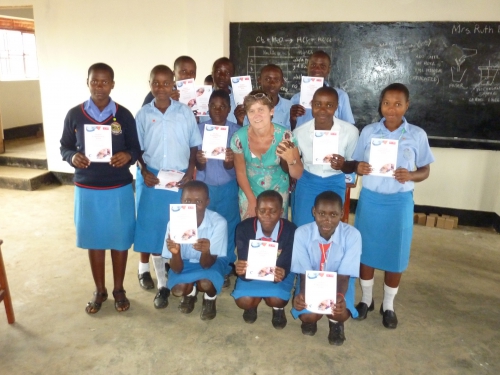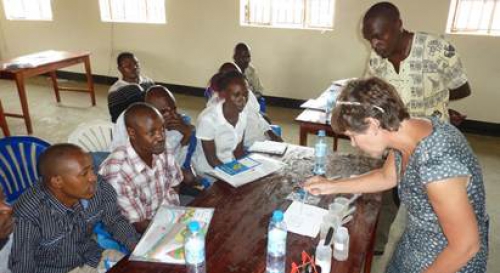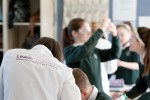The Global Experiment 2014: the art of crystallisation is proving a real success. But credit for this success must be shared with all the teachers, parents and the participants themselves – thank you, and please keep submitting your data.
 How to take part in the global experiment
How to take part in the global experiment
The experiment is simple to do as it uses non-specialised equipment and readily available materials. It is ideal for students aged 7-16 as they can investigate the properties of five samples by dissolving, saturating and growing crystals. The experiment has been running for 4 months around the world in schools, homes, science centres and science clubs.
The experiment is available here
http://rsc.li/ge2014 and will remain open to new data. So whether you have taken part already or not, have a go and don’t forget to post to our website. So far we have recorded over 12,000 participants across 4 different continents from Miami to Taiwan.
One of the best parts of the experiment is the ability to share and discuss your results. Use #globalexperiment on Twitter to share your experiment highlights. This is a great way to share your experiences of the Global Experiment as Ruth Lowe, a teacher from Old Lady’s Catholic College in Lancaster, recently did, following her trip to Uganda:
"Experiment data from Uganda
We took the alum and the magnesium sulphate with us on the plane but were not allowed to take the potassium nitrate due to its oxidising properties. A student in Kampala bought this for us and put it on the bus to Nyamirama - which is way out in the middle of nowhere.
We conducted the experiment in a laboratory which had just been built - it was therefore, the first time the students at Poullart Des Places Secondary School had used the new laboratory. The students were very conscientious and patient, and were particularly amazed at the amount of sugar which dissolved in the water. They were very pleased to receive their certificates and now proudly display their experiment pictures on the laboratory wall. It is so good to be able to carry out an experiment with basic equipment anywhere in the world”


The Global Experiments are designed to be accessible everywhere and this year we have provided video commentaries and translated instructions in five languages to help even more people take part.
So far, when you consider the likely errors due to the non-specialised equipment, the consistency and patterns in the data are looking very good. But don’t trust me – see for yourself!
http://rsc.li/ge2014
We want to hear from you – do you like the global experiments and have ideas for the future?
The success of these collaborative experiments has been so good that we are very keen to do more. Next year’s theme is the
International Year of Light and we will shortly be looking to develop a new global experiment. So if any of this has inspired you, whether is it light related or not, we know we do best when we partner with others. So whoever you are, if you have ideas get in touch with us at
learn-chemistry@rsc.org.
